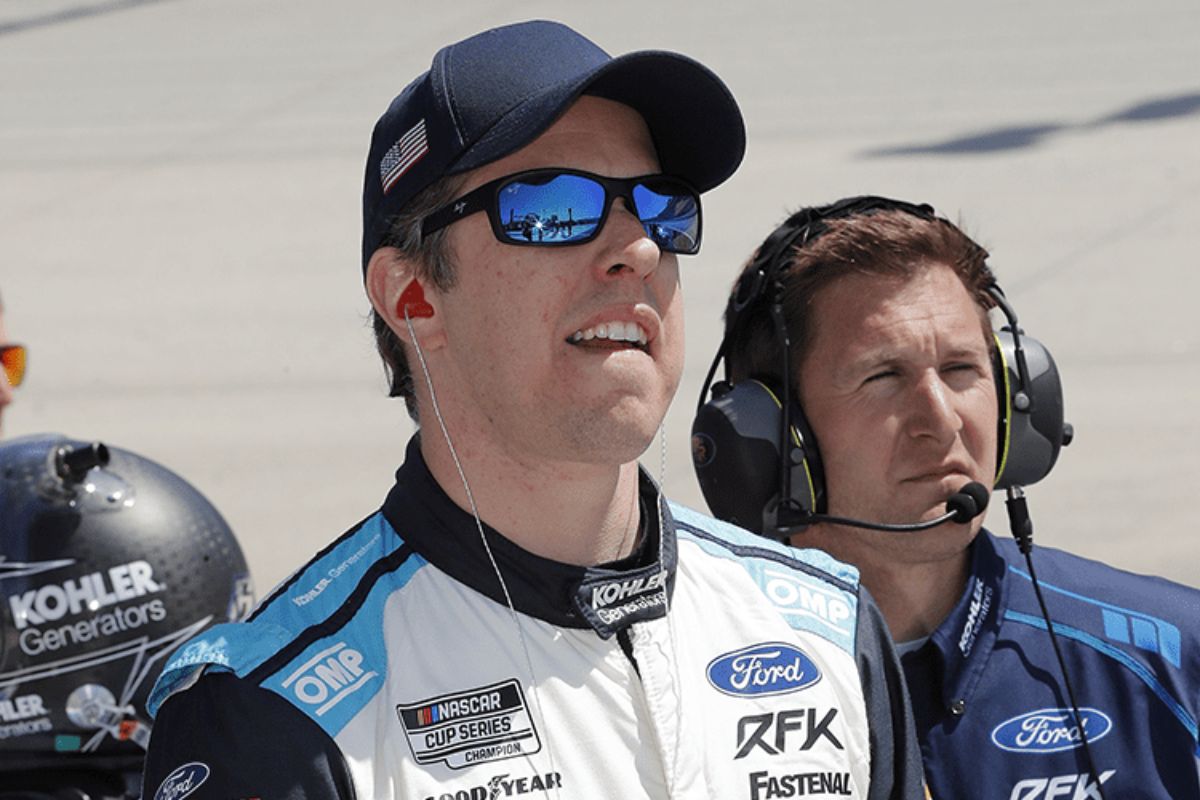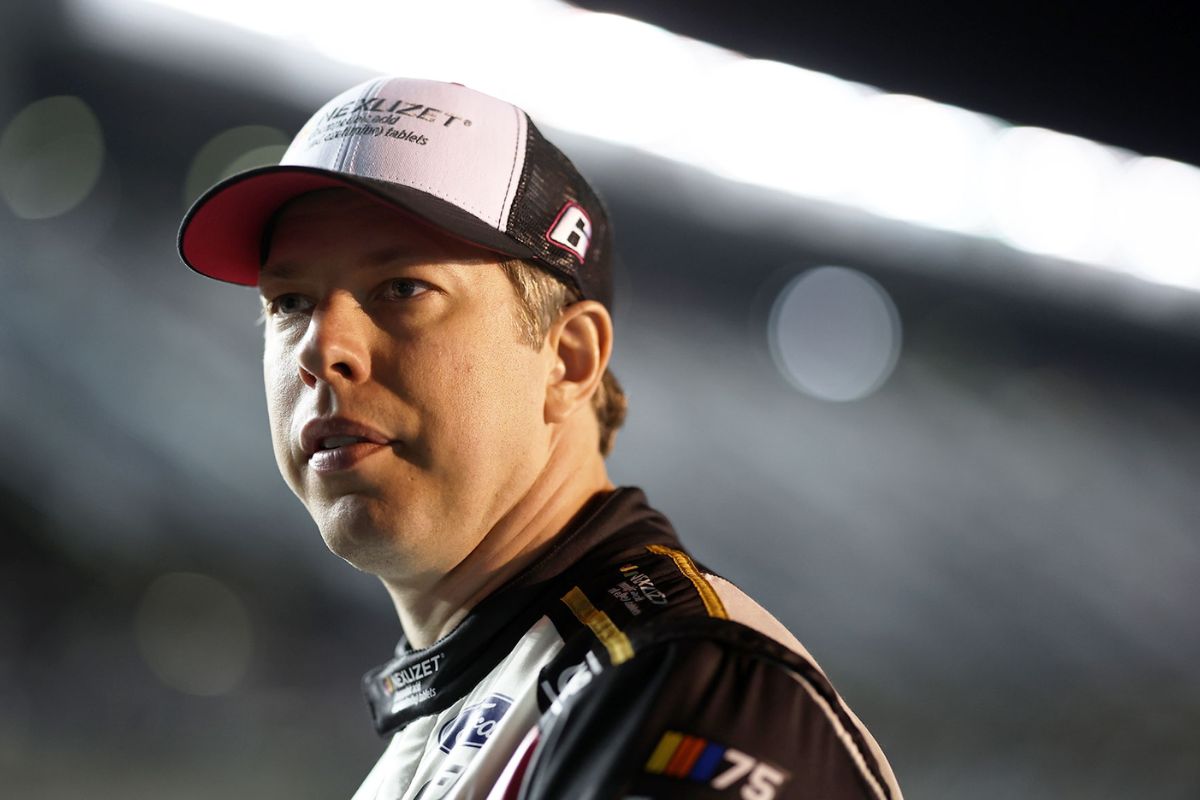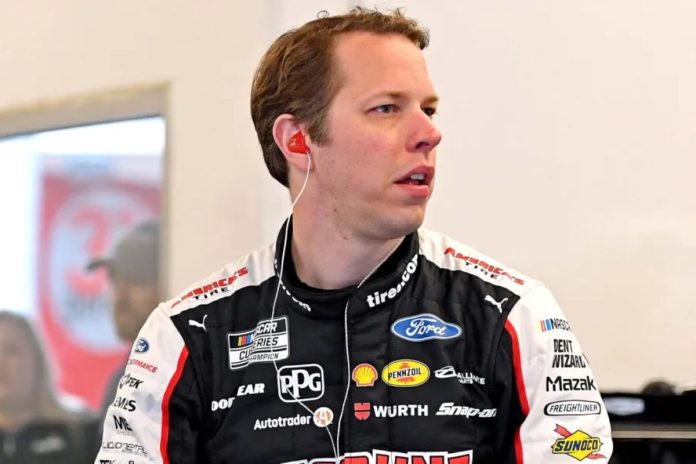Brad Keselowski Exposes NASCAR: Brad Keselowski has publicly critiqued NASCAR’s streamlined practice schedule, shedding light on a contentious operational issue. His perspective reflects a wider concern within the racing community about the reduced practice time diminishing from the quality of racing. Despite the intent to cut costs, this policy has not yielded significant financial savings for teams. Keselowski argues for the reintroduction of practice sessions, suggesting that more preparation time would enhance team performance without necessitating substantial extra costs. His critique includes the imbalance caused by increased reliance on simulation models over real-world testing. Keselowski’s insights suggest a need to reassess NASCAR’s approach to practice policies to better balance efficiency with racing integrity.
Key Takeaways
- Brad Keselowski criticized NASCAR for streamlining practice sessions, highlighting inefficiencies.
- The reduced practice schedule has not provided significant cost savings for teams.
- Keselowski advocates for more practice to improve performance and address economic concerns.
- The shift towards simulation models has increased financial pressures without clear benefits.
- There’s a call to reassess NASCAR’s cost-reduction strategies and resource allocation.
Brad Keselowski’s Concerns
Brad Keselowski, a seasoned NASCAR Cup Series driver, raised significant concerns regarding the series’ streamlined practice schedule, questioning its purported cost-saving benefits. Speaking at the NASCAR Production Studios, Keselowski’s criticisms highlight a contentious issue within the sport’s current operational framework. The driver’s reservations are not merely anecdotal; they reflect a broader sentiment within the racing community about the efficacy and impact of NASCAR’s scheduling decisions.
Keselowski’s apprehensions stem from a detailed understanding of the sport’s dynamics. As a veteran on the track, his insights into the preparatory processes necessary for best performance are invaluable. The minimal practice schedule, ostensibly designed to be a cost-cutting measure, may indeed have unintended consequences that could support its financial rationale. Keselowski’s critique suggests that the reduction in practice time could be detracting from the quality of the racing experience, both for drivers and fans equally.
The implications of Keselowski’s concerns are multifaceted. On one level, they challenge the narrative that streamlined practices serve the sport’s best interests. More critically, they invite a reevaluation of how cost-saving strategies are implemented within NASCAR. Keselowski’s perspective emphasizes the importance of aligning operational efficiencies with the core values of competitive integrity and spectator engagement.

Lack of Cost Savings
While the streamlined practice schedule in NASCAR was implemented as a cost-cutting measure, Keselowski’s observations suggest that these changes have not resulted in significant financial relief for teams in the Cup Series. Despite the intentions behind the policy adjustments, the anticipated economic benefits have seemingly not materialized to the extent expected, particularly from the perspective of team operations. Keselowski’s standpoint highlights a significant discrepancy between the policy’s objectives and its real-world impact on teams competing at NASCAR’s highest level.
Keselowski’s critique highlights a critical oversight in the cost-saving strategy: while reducing practice sessions may decrease immediate expenses related to track time, travel, and operational logistics, it does not address the broader financial pressures faced by Cup Series teams. These include but are not limited to, the costs associated with vehicle development, technology, personnel, and the competitive necessity to invest in performance enhancements. The reality Keselowski presents suggests that the savings from reduced practice times are, at best, marginal when viewed against the backdrop of the total operational budget of a Cup Series team.
This revelation calls for a deeper examination of NASCAR’s cost-reduction strategies, challenging stakeholders to consider whether the measures in place genuinely serve the financial interests of teams or if alternative approaches might yield more significant benefits. Keselowski’s insight points to a need for a more holistic understanding of cost dynamics within NASCAR, urging a reassessment of policies to better align with the financial realities facing teams today.
“I haven’t seen how we’ve saved any money getting rid of practice, not from a team perspective,” Keselowski admitted. “Maybe there were some savings other places in the industry that I’m not aware of. But there hasn’t been a significant cost savings. We’ve reallocated in a lot of way to other demands, and its hard for me to understand the value proposition today to not have practice.” ( Brad )
Advocating for Additional Practice
In light of the ongoing debate about NASCAR’s cost-saving measures, Keselowski’s firm stance on the necessity of additional practice sessions merits thorough consideration for its potential to not only improve team performance but also to address underlying issues within the sport’s economic model. Keselowski’s advocacy for reintroducing practice sessions highlights a critical analysis of the relationship between preparation time and competitive success. His perspective brings to the forefront the essential role that adequate preparation plays in motorsports, where the margin for error is minimal, and the impact of performance is magnified.
The call for increased practice time is not simply about providing drivers and teams with more track time. It embodies a deeper discussion on optimizing the sport’s operational framework, ensuring that teams have the resources and opportunities to refine their strategies, adapt to evolving conditions, and leverage technological advancements effectively. Keselowski’s argument transcends the immediate benefits of enhanced performance, venturing into the domain of long-term sustainability. By championing additional practice, he implicitly advocates for a recalibration of NASCAR’s approach to balancing cost-efficiency with competitive integrity.

Moreover, Keselowski’s position invites a reevaluation of how practice sessions can be structured to yield maximum benefits without disproportionately inflating operational costs. It suggests a potential for innovative scheduling, resource allocation, and technological integration to mitigate financial concerns while preserving the foundational elements of competition and skill development. This new approach demonstrates a sophisticated understanding of the intricate dynamics at play, advocating for a solution that harmonizes economic considerations with the imperatives of competitive excellence and team development.
“We put a lot of money and time into race car simulation. Whether that’s simulating the car statically with how it would perform aerodynamically in consideration to other things or whether its kind of a multi-body physics model, which is simulating the car going around the track. So very dynamically,”( Brad )
“We continue to make a lot of investments, and we’re not the only ones. Really, everybody is making those investments. Although, I hesitate to say we wouldn’t want to still keep those in a practice environment, there’s undoubtedly the conclusion that we wouldn’t have had to invest so heavily had we not lost practice. I feel like it’s never a good idea for our sport, when in cost consideration mode, move spending away from things that our spectators can enjoy and view or media can cover or discuss and move into areas that they cannot. I think if you look at the allocation of resources, that is what happened.”( Brad )
Impact on Team Investments
The shift away from traditional practice sessions to advanced simulation models has greatly impacted team investments, redirecting financial resources toward technological solutions with debatable returns on enhancing the overall racing experience. Teams like RFK Racing have found themselves at a financial crossroads, investing heavily in simulation technologies instead of actual on-track practice. Brad Keselowski’s observations highlight a critical period in NASCAR’s operational dynamics, where the cost of simulation not only mirrors but in some cases, exceeds the expenses associated with traditional practice sessions.
This pivot towards simulation models ostensibly offers teams a more controlled environment to test and refine car setups, theoretically reducing the need for costly track time and the wear and tear on vehicles and equipment. However, the substantial investment required to develop, maintain, and upgrade these simulation systems has raised questions about their cost-effectiveness. Keselowski’s emphasis on reallocating funds towards enhancing the fan experience and media coverage suggests a growing concern that the financial burdens of high-tech simulations may not translate into tangible benefits for the sport’s stakeholders.
The analytical perspective necessitates a thorough examination of the economics of simulation versus practice. While simulations offer a futuristic approach to race preparation, the essence of NASCAR—its connection with fans through the visceral experience of live racing—risks being diluted. The challenge for teams and the governing body lies in balancing technological advancements with the core values that have defined NASCAR’s appeal. Keselowski’s critique opens a broader dialogue on the sustainability of current investment strategies, urging a reassessment of how resources are allocated to truly enhance the sport’s competitive integrity and spectator appeal.

News in Brief
Brad Keselowski’s criticism of NASCAR’s practice policies highlights a significant tension between the desire to reduce operational costs and the necessity for adequate preparation. Despite the intention to save expenses, the current limitations on practice sessions inadvertently escalate financial pressures on teams through increased investment in simulation technologies and off-track preparations.
Keselowski’s advocacy for additional practice time not only emphasizes the need for a reevaluation of cost-saving strategies but also shows the importance of balancing fiscal prudence with competitive equity and safety considerations.
Our Reader’s Queries
Q: What did Brad Keselowski do?
A: Bradley Aaron Keselowski, born on February 12, 1984, is an American stock car racing driver, team owner, and entrepreneur. He currently races full-time in the NASCAR Cup Series, piloting the No. 6 Ford Mustang Dark Horse for RFK Racing, a team he co-owns.
Q: Who sponsors Brad Keselowski in NASCAR?
A: King’s Hawaiian continues its sponsorship of Brad Keselowski in the 2024 NASCAR Cup Series season, featuring on the No. 6 Ford for nine races. This marks their third consecutive season partnering with RFK Racing and Keselowski.
Also Read: Brad Keselowski Speaks Out: Did NASCAR Show Bias at Richmond?


